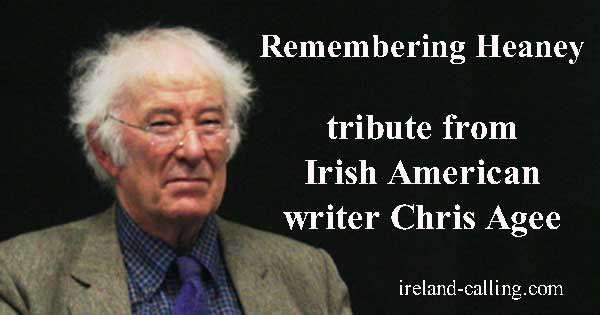Appearing twice a year, Irish Pages is a Belfast journal publishing, in equal measure, writing from Ireland and overseas. It seeks to create a novel literary space in the North adequate to the cultural potential of the new political dispensation. It is cognisant of the need to reflect the various meshed levels of human relations: the regional (Ulster), the national (Britain and Ireland), the continental (the whole of Europe), and the global.

Since its full-scale launch in 2003, Irish Pages has established itself as the island’s premier literary journal, combining a large general readership with outstanding writing from Ireland and overseas. With a print-run now standing at 2600, the journal is also, increasingly, read outside Ireland and Britain.
Widely considered the Irish equivalent of Granta in England, or The Paris Review in the United States, it offers an unrivalled window on the literary and cultural life of these islands – and further afield.
Each issue assembles a carefully edited mix of English, Irish and Scots, prose and poetry, fiction and non-fiction, style and subject-matter, in an overall fit aimed at a wide range of reading tastes. The cover theme suggests some of the content, and emerges from the editorial process – the blend of what is selected from submissions, and what is sought or commissioned.
Here Editor Chris Agee describes the impact of the journal’s two Seamus Heaney Memorial Issues, published over the past year.
~~~
I heard tell of Seamus’s ill-fated death the morning it occurred. I was in Stockholm and resolved on a single memorial issue of Irish Pages within the hour. That impulse morphed into two ampler companion volumes, “Heaney” (Vol 8, No 2) and “After Heaney” (Vol 9, No 1).
In the now-celebrated first issue, there is a particular focus on poetry, memoir, reminiscence and non-specialist literary essays on the man and his work; but it also includes outstanding writing of all genres in a posthumous celebration of the enduring literary imagination in general. The sequel, just published, focuses on the Maestro’s creative, critical and cultural legacy.
Several things struck me as I compiled that first unique volume – and, subsequently, after it was published. Whenever I spoke to anyone on this island familiar with Seamus Heaney, I noticed this person could almost always recollect vividly the exact moment that he or she heard the news of the great poet’s death. I found myself thinking that only once before had I experienced such a collective frisson of national loss: the death of JFK in the US, where I grew up. Heaney, this seemed to suggest, was (and was felt to be) the greatest living Irish person at the time of his death – a thought I frequently had when he was alive.
So many people in Ireland and overseas read, admired and watched him. The extraordinary degree to which “Heaney” was a creative and ethical exemplar, shaper, mentor, influence and generous friend for his fellow poets and writers comes through especially powerfully in the first issue, with its 54 contributors from Ireland, Britain, the United States and further afield. When the issue was finally released, it came as no real surprise, then, that we immediately received an inundation of interest and orders through our office, online on our website (www.irishpages.org), and from the book trade.
But what was surprising was that this interest went way beyond the borders of the soi-disant “literary world”, with its usual associations rooted in urban, cultural, intellectual and institutional milieux. Heaney had – as this interest dramatically demonstrated – a wholly unique reach into what the poet Eoghan Ó Tuairisc once affirmed as “the plain people of Ireland.” No wonder orders were arriving not just from conurbations, literati and universities, but from parishes and townlands, in virtually every county on the island.
In reflecting on the why of all this, I am drawn yet again, almost against myself, to another idea about Heaney I have carried around for a good while: that in Seamus (whom I knew well) we come as close as we are likely to come in a modern context to the shaping and enlightening role, both contemporaneous and enduring, of the early “Irish saints” vis-à-vis their surrounding communities. These figures were not always clerics or anchorites, like Colmcille or St Kevin of Glendalough, and frequently not even “saintly” in our usual sense; they were often communal leaders or others of social, ethical or imaginative “power” whom the Church converted later to its own hagiographical purposes, to its succession of “spiritual laureates”.
They are remembered even now, all over Ireland, when their sociological origins have long vanished, for the informing closeness to their home place of their ethical example, personal charisma and/or written testaments of succinct beauty. Heaney of course belongs to the historiographical rather than the hagiographical, and indeed was a most modern Nobel Laureate who never stopped travelling outwards from the always-close omphalos of County Derry; nonetheless, for all that bigger world, no less important to his poetry, I daresay he will be remembered and read, with especial power, for centuries and centuries, by the people of this island.
Chris Agee is the Editor of Irish Pages. His third collection, Next to Nothing, was shortlisted for the 2010 Ted Hughes Award for New Work in Poetry, organized by the Poetry Society in London. He is currently Visiting Scholar at the University of Strathclyde, Glasgow, and has recently completed a new collection, Blue Sandbar Moon.
Order or Subscribe Online: www.irishpages.org
Order or Subscribe by Phone: 0044 (0) 28 90434800
IRISH PAGES
A Journal of Contemporary Writing
129 Ormeau Road, Belfast BT7 2GJ
Tel: 028 90434800 Email: [email protected]
newsletter.html”]
writers.html
